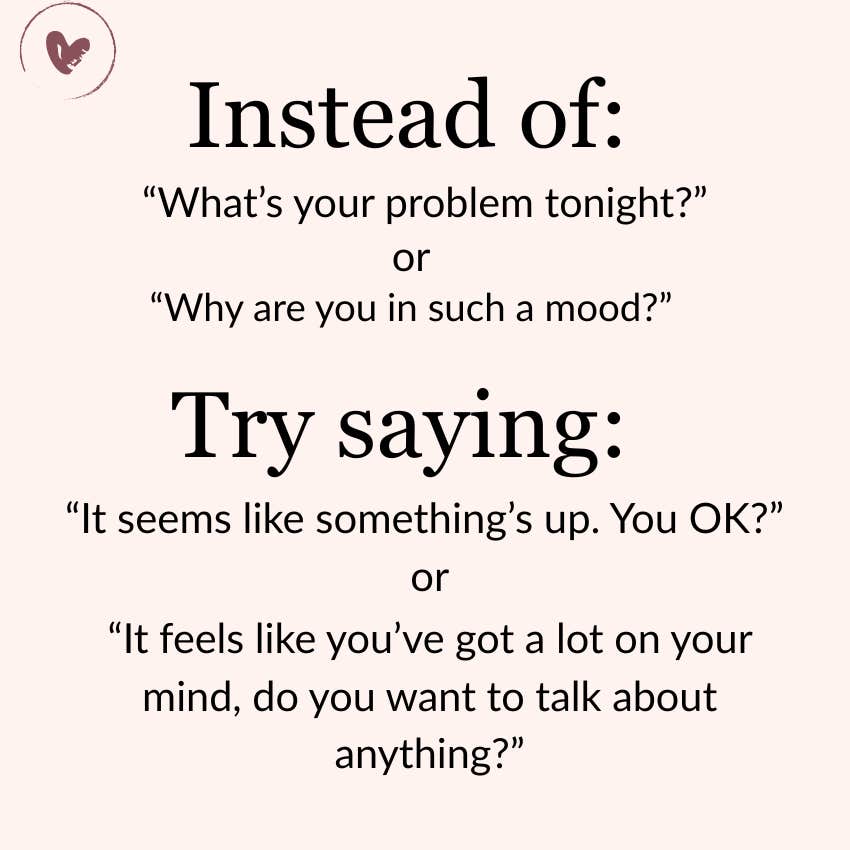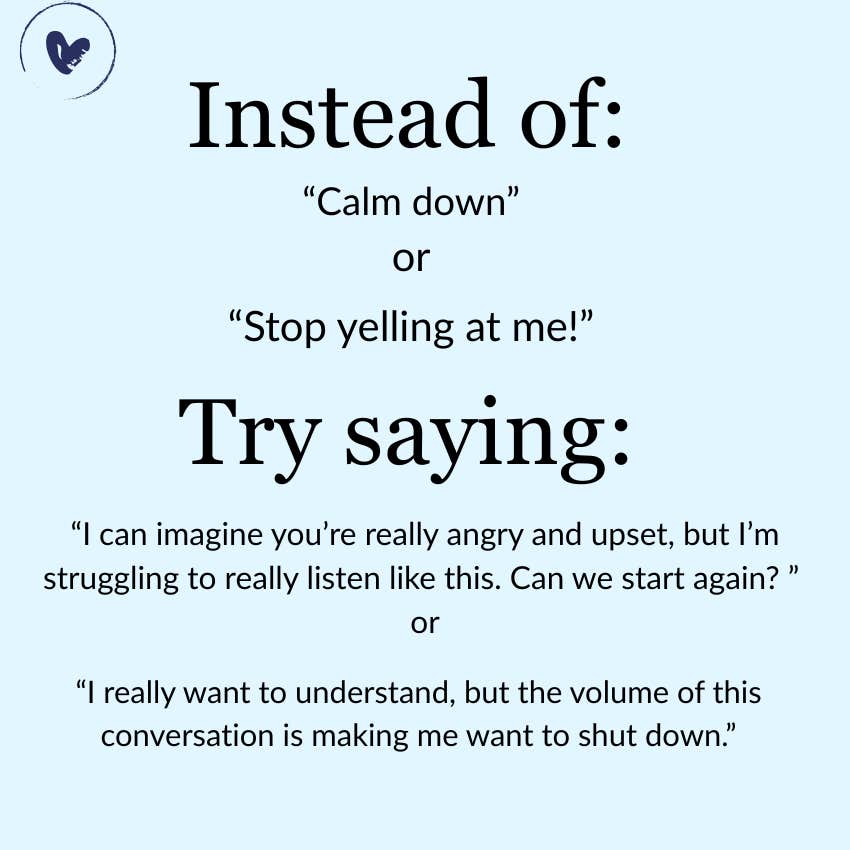9 Phrases Couples Who've Been Through A Lot In Life Say On A Regular Basis
How the happiest couples turn tense conversations into affectionate connection.
 PeopleImages.com - Yuri A | Shutterstock
PeopleImages.com - Yuri A | Shutterstock Ever start a conversation with your partner that almost instantly goes off the tracks? You sit there, stunned, wondering how it all went so wrong. Here's what couples who've survived a lot and made it through together know: Even when one (or both!) of you defaults to inflammatory language, you can get back on track. You just need to know what to say next.
Once you do, not only will you keep your conversations securely "on the rails", you can use communication to grow your connection. After all, problems are going to arise in any relationship. You need tools to survive them.
Couples who've survived a lot together avoid these common phrases:
- ”What's your problem?” (Very cranky.)
- "You don't listen to me..." or, "You fly off the handle when I speak." (You're fanning the flame.)
- "Calm down." (Guaranteed: They'll be more upset than ever.)
- "You don't care about my feelings..." (Puts them on the defensive, and they will be exonerating themselves instead of taking care of you.)
- "Use your brain," or “Be logical." (Patronizing.)
- "You are an idiot, heartless, a nag, etc." (Creates distance. Character assassination is not good bonding.)
- "Always," or "Never..." (Even the worst of us get it right sometimes.)
- "I can't talk to you about anything important." (And then cry, sulk, rage, or withdraw. (Not fair.)
- "Why are you in such a mood?" (You don't get to decide if someone else is in a mood, you can only inquire)
 YourTango
YourTango
Instead, they say these phrases:
- "It feels like something's up. Are you OK?"
- "I care about talking to you and appreciate that you will listen to me.”
- "I get the sense that something might be going on. Can you tell me about it?”
- "I know that you love me, but when you ____, I feel ____, and prefer that we could____. Is that OK with you?”
- "I'm not being clear. Please tell me what you did hear, and then I’ll explain it better.”
- "I appreciate your awareness, concern, and caring about our relationship. Could we start over?"
- "Would you mind doing this/changing this as a favor to me? It would be meaningful." Then state your present complaint — no past, no future.
- "I can imagine you feel like _____. Is that correct?"
- It feels like you've got a lot on yoru mind, do you want to talk about anything?"
A few more examples of what to say when things get tense:
- "I want your help," or “I would like to tell you," using a neutral tone of voice.
- "I want to hear what you have to say and will be calm or ask to table the discussion until I can communicate better.”
- "I don't know that I can right now, but would you hold me, listen, or __ .”
- "I must not have shown you as well as I could, but I do care. Please give me another chance.”
- "I think you mean_____ — just tell me what I've missed or misunderstood.”
- When words fail, a logical, heartfelt, and succinct email might be in order.
- "What can I do for you?" Act friendlier than you feel.
- "That's something I can correct.” Do not defend yourself.
- "Whenever you're ready, I want to hear how to help you."
 YourTango
YourTango
What you do matters just as much as what you say
Look at the person talking and stay rooted in the moment
Taking a non-emergency phone call, typing, and checking messages is hurtful and makes you seem disinterested. To offset listening difficulties, try holding hands. It may feel awkward, but it keeps you connected literally and figuratively. Breaks may be needed, but reschedule before you agree to them.
No one needs the all-too-familiar feeling that you've had this conflict again and again and again. State what you want or need without making them bad for not having already delivered it, and stay present in the moment.
Reassure and stay connected via touch
 PeopleImages.com - Yuri A via Shutterstock
PeopleImages.com - Yuri A via Shutterstock
Hold hands, make eye contact, keep in the now, and speak as though you are addressing a peer whose respect you value. Remember that touch has been shown to release oxytocin, the bonding hormone, and that it can release a lot of stress to help diffuse the tension.
When things start to get heated, ask for a break and ask if your partner would like a hug. Research shows that hugs are incredible tools for bonding and can co-create a more peaceful situation.
Give your hug freely and take a deep breath then release it slowly. Let your body relax and you may find your partner's body will, too. A simple long exhale can release an enormous amount of stress.
Stress can interfere with your understanding of how to effectively communicate with those around you, and it's important to practice understanding and forgiveness more than ever. High stress is not a natural motivator for kindness, so it's likely that you and those around you are making a lot of mistakes.
Avoid these common tone traps, too:
- lecturing
- complaining
- whining
- being pompous
- manipulation or indirect language
- judgemental sarcasm
- "jokes" that aren't actually kind or funny
Speak up, listen to yourself, and hear your partner out
Without self-revealing, you can’t be understood. If you don’t feel understood, you won’t feel loved.
Better communication is needed now and will always be useful for intimacy now and in the future. Whether you keep the one you are with or say goodbye, now is the time to find your voice.
Dr. Janet Page is a psychotherapist and author, working with individuals, couples, and groups for 30 years. She has been featured in The New York Times, Men's Health, Glamour, SELF, Huffington Post, US World, and News Report, among many others.

